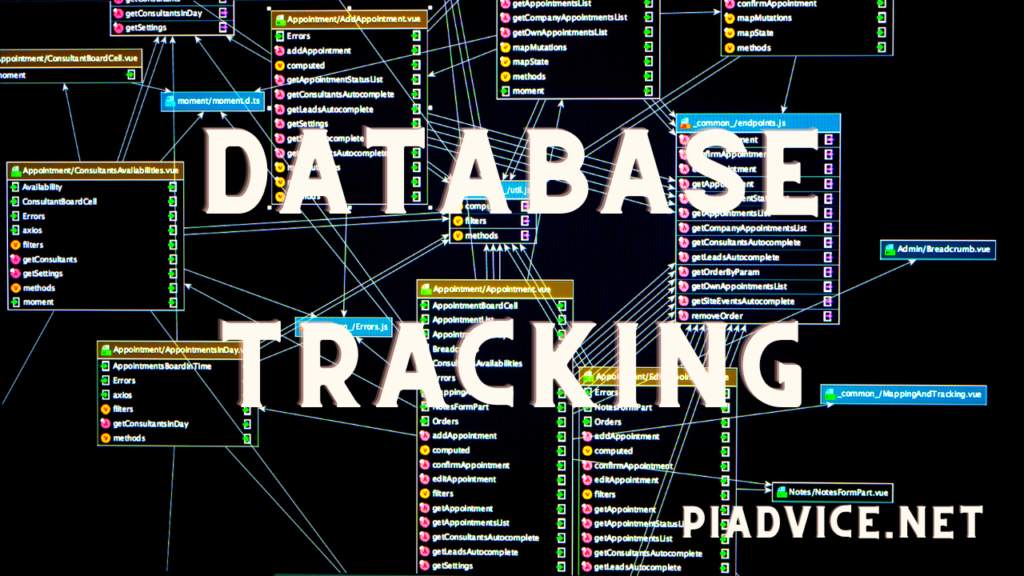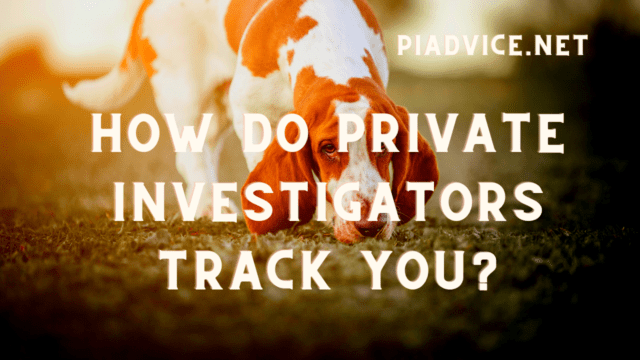A private investigator will use a variety of sources to track someone down and find their location. Sometimes private investigators will use a combination of surveillance techniques to track an individual.
Private investigators are usually tasked with tracking down someone to find their location or tracking down someone to conduct surveillance on them.
Tracking an individual essential comes down to 3 types of resources:
- Visually Tracking
- Socially Tracking
- Digitally Tracking
Let’s get into the different ways Private Investigators track or track down individuals.
Contents
- 1 Client Information Provides the Location of Someone to be Tracked
- 2 Database Information Search
- 3 Using Social Media to Track Individuals
- 4 Surveillance Tracking
- 5 Tracking a Subject from an Appointment
- 6 Tracking a Subject From Their Employer
- 7 General Surveillance Efforts (Tracking Movements)
- 8 Employers May Assist in Tracking You
- 9 Associates and Family Can Help a Private Investigator Track Someone
- 10 Remote Video Cameras
- 11 GPS Trackers to Track Individuals
- 12 Phone Tracking
Client Information Provides the Location of Someone to be Tracked
When a client hires a private investigator they generally will complete a client intake document that provides all the information they have about the individual related to the investigation.
Information is Collected Such as:
- Full Name
- Social Security Number
- Last Known Address
- Phone Number
- Vehicles
- Date of Birth
- Any Special Instructions or Objectives to be Completed
This information is the foundation for the private investigator to begin an investigation to either track down an individual or begin surveillance efforts on the individual.

Database Information Search
Generally speaking, when a private investigator is hired to track someone down, one of the first things a Private Investigator will do is verify the information provided by the client.
This is important because the information provided by the client is not always as accurate as the client thinks.
If the client is an employer or of the subject, the information in their employment file might be outdated or wrong altogether.
The client may say the subject lives at a particular address but the investigator may determine that the address is not a current address for the subject through the use of database sources.
The investigator will conduct their own due diligence and gather as much information as they can through databases and social media to be efficient in their locating the individual.
For more information about tracking individuals through databases be sure to check out the article about skip tracing.

Using Social Media to Track Individuals
Generally, we have become more of a society that wants to share experiences. According to a Pew Research Study in 2018, teenagers post approximately 49% of the time about their accomplishments and 44% of the time about family.
While this information might seem unrelated to investigations, it is actually quite valuable to an investigator wanting to track the whereabouts of an individual.
People generally are excited to share what they are doing, eating, and accomplishing in life. Sometimes they share what their kids are doing and accomplishing. All this information helps an investigator locate and plan around tracking and locating an individual.
Sharing where you eat might help an investigator narrow down where someone lives or dines frequently.
If you are vacationing, you are likely revealing your general location. This helps the investigator locate you or at least determine when you are not home so as to not waste investigative hours.
If you show that you are working out, this gives a clue to the investigator that you may have a home gym or visit a gym frequently. This can come in handy for an investigator trying to find someone.
All information provided on social media can be clues to a private investigator finding, tracking, and documenting someone during surveillance efforts.

Surveillance Tracking
Surveillance can be used in a variety of ways as it relates to tracking someone down or tracking their movements.
Tracking a Subject from an Appointment
Some individuals do a great job of not being found. Depending on the information located or available to the investigator, the investigator may pick up the subject from a known appointment or a location a subject is known to travel to.
For insurance investigations, an insurance investigator may have a hard time locating where a claimant lives. The insurance company may provide a known appointment the claimant is going to attend. The investigator will conduct surveillance from the appointment with the objective of following the claimant to their home. Following the claimant to their home will give a starting point for the investigator for future surveillance efforts.
Tracking a Subject From Their Employer
With the same principles as above whether it be insurance-related or not. If the investigator is able to determine where the subject works, they will be able to follow them from that location whether to conduct surveillance generally or to follow them to their home.
General Surveillance Efforts (Tracking Movements)
Assuming the investigator knows where the subject lives, private investigators are frequently hired to follow and document the activities of individuals for a variety of reasons including domestic, child custody, and insurance-related reasons.
If a subject is lost, the investigator may refer to the aforementioned strategies to help locate the subject again to resume surveillance efforts (Social Media and Databases).
If are wondering what to do if you are being followed, I have written about that here.
Employers May Assist in Tracking You
If an employer works together with an insurance company or directly with the private investigator in regard to a claimant’s insurance claim, many times the claimant reveals locations they are going to within the company. Claimants may share trips or details of their lives with employees who end up sharing that information with human resources. This information can eventually make it back to the investigator.
I have had personal experiences where a claimant was vacationing in an area and told all their work friends when they were leaving, where they were going, and how long they were going to be there.
This information then got back to the insurance company which assigned surveillance to be initiated from the hotel they were going to be staying at.
I was able to videotape the claimant digging for clams at night, driving, and gambling.
These sorts of situations are ideal for investigators when surveillance efforts are not ideal from a claimant’s residence.

Associates and Family Can Help a Private Investigator Track Someone
In some situations, friends or family might be sources of information for a private investigator as to the whereabouts of an individual. They may inform the investigator of a work schedule or events the subject the individual may be traveling to.
Remote Video Cameras
Remote video cameras are covert video cameras that run on batteries and a cellular signal. The camera can be viewed remotely for approximately one week.
If a private investigator is attempting to determine patterns of behavior from a residence or determine if a subject ever travels to a specific location this camera can be incredibly valuable in tracking an individual.
GPS Trackers to Track Individuals
GPS Devices can be used to track vehicles however it is not recommended that a private investigator directly track a vehicle.
In basically all 50 states it is illegal to GPS track a vehicle that you do not own.
I have known investigators that will attempt to skirt around this legality by having the owner place the GPS device on their vehicle and the private investigator track the subject of the investigation’s whereabouts. This in my opinion is a slippery slope that will end up in court and become a cautionary tale of case law for others to read about in the future.
Phone Tracking
A private investigator can not track a person’s phone. There are plenty of laws on the books that prevent that from happening. There are phone tracking apps on the market however one of the easiest ways to track an individual is the use of Find My Phone (with Apple phones).
A spouse could use the Find My Phone tracking app and share the location of the person to a private investigator. The private investigator can then conduct surveillance at the provided location.
This app and other apps like this are incredibly accurate.
A private investigator can track an individual with all of these resources or a combination of them all ethically and legally. Private investigators are good at what they do using the resources they have. If you would like to read about different types of surveillance, you can read more about that topic here.
Recent Posts
Hawaii is probably one of the most interesting states to work as a private investigator if you are not used to the culture or a native of the state. And if you are not a local, that is something...
How to become a private investigator in Georgia

